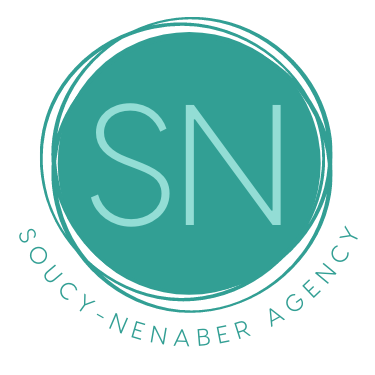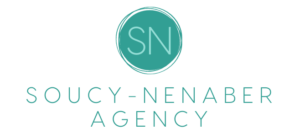If you’re Googling ‘insurance agency startup costs’ because you’re done with the golden handcuffs of corporate life, you’re in the right place. Not too long ago, I was a nurse trading scrubs for spreadsheets, staring at a startup tab that felt like a mountain. But here’s the truth: those costs? They’re the entry fee to freedom—flexible hours, uncapped commissions, and the rush of handing a family their safety net. At SN Agency, we’ve walked hundreds through it, turning that initial investment into six-figure legacies.
Embarking on a career as a life insurance agent can be both rewarding and challenging. While the potential for success and independence is appealing, it’s crucial to understand how much it costs to become an insurance agent and the initial financial investment required. This article will delve into the start-up costs associated with becoming a life insurance agent, offering insights into the expenses you can expect and tips on how to manage them effectively. Whether you’re just considering this path or actively preparing to enter the industry, understanding these costs will help you make informed decisions as you launch your new career.
Table of Contents
What Are Start-Up Costs?
Start-up costs are the initial financial investments necessary to begin a career as a life insurance agent. These costs encompass a variety of expenses that lay the groundwork for a sustainable and successful career in the industry.
They typically include fees for obtaining licenses and certifications, costs associated with essential training programs, and investments in marketing and technology resources. In the context of becoming a life insurance agent, these expenses are critical as they ensure compliance with regulatory standards, equip agents with the knowledge needed to navigate the insurance landscape, and provide tools to effectively reach and connect with potential clients.
Establishing a solid foundation through these start-up costs is vital for ensuring long-term success. Aspiring agents can position themselves for growth and opportunity within a competitive market by investing thoughtfully in these areas. Proper management of start-up costs allows agents to focus on building their client base and nurturing client relationships, which are essential components of a thriving insurance practice.
Understanding and planning for these financial outlays not only helps alleviate the burden of initial expenses but also encourages strategic financial planning that supports business longevity and prosperity.
Before: Drained by 40-hour weeks. Now: Coffee at 10 a.m., closing deals from the nearest Starbucks.
5 Typical Start-Up Costs for Life Insurance Agents
Understanding how much it costs to become an insurance agent and the typical start-up costs involved in becoming a life insurance agent is crucial for financial planning and management. These initial expenses can be broadly categorized into several key areas:
1. Licensing and Exam Fees:
Before starting as a life insurance agent, professionals must obtain the necessary state licenses. These typically involve fees for pre-licensing courses, the state exam itself, and ongoing license renewals.
Within our company, SN Agency, agents must maintain the necessary insurance licenses in their resident state and any non-resident states where they or their downline agents conduct business. Those operating as a business entity are required to hold appropriate licenses for both themselves and their business. Agents are responsible for all costs related to initial licensing, renewals, continuing education, and other associated fees.
Licensing costs differ significantly from state to state, so it’s essential for agents to verify the requirements in the state they intend to work.
Missouri Fees Example: The cost of licensing and exams to become a life insurance agent in Missouri includes:
- Exam fee: The exam fee for the Missouri Life & Health Insurance License is $39 per line or $49 for the combined life, health, and accident license. You can register for the exam online through Pearson VUE.
- Application fee: The application fee for a Missouri insurance license is $100.
- Uniform Application: You must submit a completed Uniform Application for Individual Insurance Producer License form. You can find this form at www.nipr.com.
2. Training and Education:
Investing in comprehensive training programs is essential to develop the skills and knowledge needed for success in the insurance industry. This includes costs for attending workshops, courses, and acquiring study materials relevant to insurance products and sales techniques.
How SN Agency Supports Continuous Learning and Development for Life Insurance Agents
$500–$2,000 for courses, but imagine free mentorship calls with me and Cory? We’ve got agents who skipped pricey seminars and hit $50K in year one through our social media storytelling system—no cold calls, just authentic shares.
3. Marketing and Branding:
Establishing a presence in the market requires a strategic marketing plan. Initial costs may include creating a professional website, business cards, promotional materials, and advertising campaigns to attract and engage potential clients.
Expected cost can range from $1,000 to upwards of $10,000.
4. Office Setup:
Once you are a licensed agent, it’s time to start purchasing supplies and figuring out where you’ll be operating your business.
- A lot of agents work from home, which can save quite a bit of money by skipping the expenses of renting an office and commuting.
- If you’re looking for a dedicated spot outside your home to work and meet with clients, renting an office space might be a great move. This involves costs for renting space, furnishing, and acquiring necessary office equipment and supplies.
Here is an example of the costs involved in establishing a small agency in a rural area. It’s important to note that if you choose to set up your business in a medium or large city, rent and associated expenses tend to increase.
- Basic equipment like printers, furniture, and computers: $2,500 – $5,000
- Lease deposit and minor renovations: $3,000 – $6,000
5. Technology:
Agents need reliable technology to manage client information and communication effectively. Initial investments might be necessary for purchasing laptops, smartphones, customer relationship management (CRM) software, and other essential technology tools.
By anticipating these start-up costs, aspiring life insurance agents can prepare adequately, ensuring they allocate their resources efficiently to build a strong foundation for their new career.
Here are some examples of tech expenses:
- Email marketing software: $20-$50 a month
- Website hosting with personal domain name: $20-$50 a month
- Company CRM $50/month
Leveraging Resources for Success
Successfully navigating the initial phase of becoming a life insurance agent often involves utilizing available resources to their fullest potential. Prospective agents should explore industry associations and professional networks that offer educational webinars, mentorship programs, and networking opportunities.
One such organization leading the way in support and development for agents is our SN Agency parent company, Symmetry Financial Group. Known for its commitment to agent success, Symmetry Financial Group provides outstanding resources, training, and a supportive community to help agents thrive in their careers.
Who is Symmetry Financial Group?
Symmetry Financial Group has established itself as a prominent player in the life insurance industry by offering a wide range of comprehensive insurance solutions tailored to meet diverse client needs. Known for its innovative approach, Symmetry Financial Group provides agents with the necessary tools and support to succeed in a competitive market. With a mission to simplify the process of obtaining life insurance, the company focuses on delivering personalized service through a broad portfolio of products that ensure financial security for families and individuals alike.
Symmetry Financial Group (SFG) is the nation’s leading independent IMO with access to a long list of insurance carriers and agents working in all fifty states. Symmetry, as a subsidiary of Quility Insurance, provides agents with exclusive digital insurance products, revolutionary insurtech, a robust leads program and an award-winning culture. Agents with Symmetry leverage all of this to connect clients nationwide with life insurance solutions that fit their needs, all while building a career they truly own that will leave a lasting legacy. (sfglife.com)
Quility is a leading insurtech company that crafts innovative products, applications, and services tailored for life insurance agents. Its primary distribution channel is Symmetry.
Innovation and Agent Support
Symmetry Financial Group’s reputation for innovation is built upon its commitment to providing cutting-edge tools and resources that empower agents to thrive in the insurance industry. By leveraging the latest technology, the company streamlines operations, making it easier for agents to focus on client relationships and service delivery. This forward-thinking approach ensures that agents have access to training programs, marketing resources, and an extensive support network.
Moreover, Symmetry’s dedication to fostering a collaborative environment encourages knowledge sharing and professional growth, positioning their agents for long-term success in a dynamic and evolving market.
What Agents Say: Before-and-After Stories
Recap: How Much it Costs to Become an Insurance Agent
Understanding and planning for start-up costs is essential for any aspiring life insurance agent. By having a clear grasp of potential expenses, individuals can create a realistic budget and make informed decisions that set the stage for a successful career. Proper financial planning not only alleviates the stress associated with unexpected costs but also ensures that agents are well-equipped to leverage resources efficiently.
By strategically managing start-up expenses, new agents can focus on building a robust client base and driving their career growth without financial distractions.
Ready to invest in you? Take our free quiz and hop on a 15-min call. Spots fill fast—because freedom waits for no one. Apply here.“
Before you budget, quiz yourself: Is agent life your fit?








